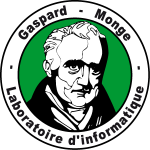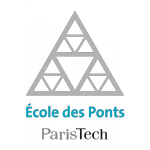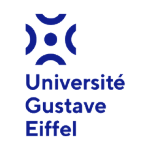Imagine recognizes the importance of human-induced climate change and its social consequences.
As a research group of École des Ponts ParisTech, under the french ministry of Ecology, it considers that the ecological impact of its activities is of prime importance, and that it has a moral duty to consider it in the different aspects of its activity.
In January 2025, it decided to endorse the following charter, which will be regularly re-discussed and updated.
Introduction
As a group centered around AI, Computer Vision and Deep learning, Imagine researchers will:
- Consider the environmental and social costs and benefits of the research they pursue as an important factor on research topic and collaborations selection.
- Attempt to contribute to a better understanding of the ecological footprint of Machine Learning.
- Attempt to contribute to the emergence of responsible practices in Machine Learning research and development.
Assessment
Imagine will:
- Assess yearly its greenhouse gas emissions.
- Publicly communicate on the results of its assessment.
- Define long term goals in terms of average yearly footprint reduction per researcher.
- Aim at reducing the average yearly footprint per researcher by 20 % per researcher in the 2025-2030 period
Travels
Travels represent a significant portion of the carbon footprint of Imagine. While it is aware of the importance of in person conferences participation and research visit in international labs, especially for early-career researchers, it will attempt to reduce the carbon footprint of travel by:
- Encouraging participation in events accessible by railroad, rather than plane, and generally events closer to Paris.
- Developing local events to make them a meaningful alternative to far away conferences, e.g., in the spirit of NeurIPS in Paris.
- Favor long term stays, with multiple visit/conference participations, over single week trips.
- Ban plane travel when a railroad alternative of less than 6 hours is available, while funding 1st class train tickets (to minimize impact of travels on wellbeing) whenever administratively feasible.
- Define long term reduction plans of the number of yearly flights per researcher.
Material and compute
Imagine will:
- Consider the ecological cost of compute in its research practices.
- Favor usage of lower impact compute, e.g., Jean Zay cluster usage over local GPUs.
- Attempt to extend the lifespan of its material, including laptops, screen, and GPU servers by defining relevant actions (e.g., minimum lifetime before replacement).
Food
Food is a significant portion of individual carbon footprint, especially meat and fish consumption. While recognizing that eating habits and choice are individual choices, and that vegetarian or vegan regime might not be adapted for all, Imagine will attempt to raise awareness on the impact of eating habits by:
- Ordering vegetarian buffets for lab events.
- Making vegetarian meals the default option for the lab retreats.
- Encouraging vegetarian Wednesday lunches.
Education and awareness
Imagine will organize regular workshops on climate related topics, with the goal of every lab member participating in at least one workshop every two years.
Past GHG assessments
These assessments were performed using the standard labos1point5 tools.
- 2024 is a high emission year (~3.1 teCO2 per member), with a lot of traveling (48%) in particular related to a collaboration with Japan, and an important renewal of our GPU compute (32%).
- 2023 can be considered as a low impact year with the lab current practices (~1.5teCO2 per member). Indeed the ICCV conference to which most lab members went happened in Paris. We improved the assessment by incorporating alimentation.
- 2022 was our first GHG assessment, and can be considered as a high impact year for Imagine (~2.5teCO2 per member) especially in terms of travel (72% of the footprint). Indeed, the first post-covid in person CVPR conference happened in New Orléans, where most of the lab’s members flew, resulting in a very high footprint related to travel.



